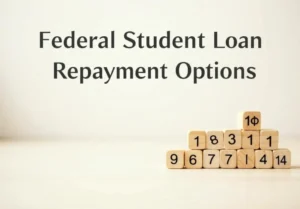
Are you drowning in debt and feeling like there’s no way out? Grants can offer a glimmer of hope, but where should you start looking?
To get a grant to pay off debt, explore federal, state, and local government resources, as well as nonprofit organizations dedicated to financial assistance. Various online databases and tools can help you identify grants tailored to your situation. But that’s just the tip of the iceberg—stay with us to uncover more strategies, tips, and potentially hidden gems that can pave your way to financial freedom.
Key Takeaways:
- Explore federal, state, and local resources like Grants.gov, community action agencies, and nonprofit organizations to find financial assistance tailored to your debt relief needs.
- Craft a compelling grant proposal by clearly outlining your financial situation, personal story, and a well-defined plan for the funds.
- Consider unique options such as crowdfunding, peer-to-peer lending, and assistance from local businesses or religious organizations to diversify your strategies for reducing debt.
Disclaimer: The information on this blog is for general educational purposes only and does not constitute personalized financial advice. While we strive for accuracy, FinanceBeacon cannot guarantee the reliability or suitability of the content for your specific financial decisions. Always consult a qualified financial advisor before making any financial choices. Use this information at your own risk.
Federal Grants for Debt Relief
There’s a specific focus within federal programs aimed at helping individuals in debt, but it’s not quite the same as simply handing out cash. Federal grants aren’t typically designed specifically for paying off personal debt, but a few programs help reduce financial burdens indirectly.
Applications usually occur through established pathways like the Grants.gov website, where various federal opportunities are posted. For debt relief, you’ll want to explore:
- Temporary Assistance for Needy Families (TANF), which can provide short-term help and aid.
- Low-Income Home Energy Assistance Program (LIHEAP), potentially freeing up money by reducing high utility bills.
- Supplemental Nutrition Assistance Program (SNAP), which can also lessen food costs.
Getting involved is straightforward. Start by visiting Grants.gov and using the search function to sift through available grants related to financial assistance. You’ll need to create an account and submit an application that outlines your circumstances and reasons for seeking support.
Make your case strong. Be clear about how the grant would alleviate your financial situation. While the process can be competitive, it’s worth the effort to seek out and apply for any relevant assistance.
State-Specific Funding Opportunities
Every state has its own set of resources aimed at helping residents tackle debt and financial strain. Not all of these programs are explicitly labeled as “grants,” but many are structured to provide financial aid or support services tailored to state residents.
For example, states like California offer the California Individual Taxpayer Identification Number (ITIN) program, which helps low-income individuals access assistance and tax savings that can indirectly alleviate debt. In Texas, the Texas Homeowner Assistance Program offers grants to homeowners struggling with mortgage payments due to unforeseen situations.
Here’s a quick look at several other state-specific programs you might explore:
- New York: The Emergency Rental Assistance Program (ERAP) to help tenants at risk of eviction.
- Florida: The Florida Housing Finance Corporation provides specific aid for homeowners at risk of losing their residences.
- Illinois: Local community-based grants often exist aimed at specific demographics, like veterans or single mothers.
Always check your state government’s website or local community organizations for specific programs. Many states offer workshops or informational sessions that can guide you through applying for grants or aid in a low-pressure environment. These local programs may not be widely advertised, so digging a bit deeper can yield promising results.
Local Nonprofit Organizations
Local nonprofits can be a treasure trove of resources when you’re looking to tackle debt relief. Many organizations understand the unique struggles people face, and they often have grants or assistance programs designed specifically for that purpose. Here are a few ways to find help in your community:
-
Community Action Agencies : These local organizations often have programs to assist those struggling financially. They may provide grants or help negotiate debts.
-
United Way : A great first stop, they can connect you with local agencies offering financial assistance specifically for debt relief.
-
Credit Counseling Services : Non-profit credit counseling services can also offer programs that include grants or low-interest loans to help pay off debt. Look for those accredited by the National Foundation for Credit Counseling (NFCC).
-
Religious Organizations : Many churches and faith-based groups provide financial aid and may have special funds to assist individuals in debt crises.
-
Local Foundations : Research local foundations that focus on financial stability or emergency assistance. These organizations often have grant programs or can guide you to other resources.
Unique Insight: Collaborate with Local Business
Consider reaching out to small businesses in your area. Some might have community outreach programs or be willing to sponsor local individuals needing assistance. Building a relationship with local sponsors can sometimes lead to customized assistance or even grants for specific circumstances.
Online Grant Databases
Exploring the internet for grants can open up a world of opportunities. Here’s where to start:
-
Grants.gov : The official government site is an extensive resource for federal grant opportunities. Create a profile to receive notifications about grants that match your needs.
-
Foundation Center : They offer a searchable database of foundations and their available grants. It’s a bit of a goldmine for applicants seeking funding for debt relief.
-
Candid : This organization provides access to various databases, including data on foundations that grant funds to individuals facing financial difficulties.
-
Charity Navigator : Not only does this site evaluate charities, but they also provide insights into organizations offering financial support and grants to individuals.
-
GrantWatch : A platform where you can search for grants based on your local area and specific needs, including those aimed at debt relief.
These resources can effectively guide you on your quest for financial aid. Take the time to comb through these databases and apply to as many relevant grants as you can. Each step can make a significant difference toward easing that debt burden.
Tips for Writing a Grant Proposal
Crafting an effective grant proposal can be a game changer when trying to pay off debt. Here are some strategies to help your application rise above the rest:
-
Understand the funder : Before you dive into writing, research the funding organization. What are their priorities? Tailor your proposal to resonate with their goals. If they focus on community improvement, emphasize how reducing your debt will benefit your neighborhood.
-
Make it personal but professional : Tell your story with sincerity. Your personal situation should connect on an emotional level while keeping a professional tone. Highlight specific challenges you’ve faced and how a grant would directly impact your road to financial stability.
-
Be specific and data-driven : Lay out your financial situation clearly, including numbers that illustrate your debt and income. Use charts or tables if it helps convey the information better. Funders appreciate clarity and concrete details.
-
Outline a plan : Funders want to know how you’ll use the grant money. Provide a clear financial plan showcasing how the funds will be allocated. This could be payment schedules, reducing interest rates, or consolidating loans.
-
Proofread and seek feedback : Spelling and grammar errors can undermine your credibility. Ask friends or mentors to read your proposal and provide constructive feedback. Fresh eyes can catch mistakes and offer valuable insights.
Unique Financial Assistance Programs
Beyond traditional grants, there are unique financial assistance options that can aid in managing debt. Here’s a look at a few worth considering:
-
Crowdfunding : This can be an effective way to gather support from your community. Platforms like GoFundMe allow you to share your story and seek donations. Make sure to actively promote your campaign through social media and local networks.
-
Community funds : Local nonprofit organizations often have funds allocated for debt relief or emergency financial assistance. Research community foundations in your area to see if they have programs that fit your needs.
-
Peer-to-peer lending : This model allows you to borrow money from individuals instead of banks. Websites like Prosper and LendingClub connect borrowers to investors looking for interest on their loans.
-
Religious organizations : Many faith-based groups offer financial assistance to those in need. Check with local churches or community associations; they often have programs to help members facing financial hardships.
Exploring these options can provide you with flexible pathways to reduce debt while giving you the support you need. Focus on crafting a compelling narrative no matter what route you choose—whether it’s a grant proposal or another form of assistance.
Specialized Grants for Specific Situations
Various grants exist to support targeted groups dealing with debt. If you’re a veteran, organizations like the Patriot Boot Camp offer funding for entrepreneurial veterans. Single parents can tap into resources such as The Women’s Opportunity Awards, which help cover educational costs, allowing you to boost your income and address debts more effectively.
Additionally, if you’re a displaced worker, look for grants through programs like the Trade Adjustment Assistance (TAA), which can help alleviate financial burdens through training and support. Engaging with local nonprofits is key; they often have tailored programs or can connect you with grants specific to your community’s needs. Thorough research is essential. Consider resources like Grants.gov and check offerings from foundations, as many provide specific grants that aren’t widely advertised.
Another option is exploring grants for underrepresented groups, such as minority-owned businesses through the Minority Business Development Agency. These funds could help you initiate a business venture that generates income to manage existing debts. Keep your eyes peeled for local initiatives, as cities frequently have resources aimed at helping residents succeed.
Understanding Eligibility Requirements
Different grant applications have unique eligibility criteria, making it crucial to assess your qualifications before diving into the application process. Here are some common aspects to consider:
- Income Level : Many grants target low-income individuals or families struggling with debt. Check if your income aligns with the specified limits.
- Debt Type : Some grants focus on specific types of debt, like student loans or medical bills. Knowing which category yours falls into helps narrow your search.
- Residency : Grants may be offered at local, state, or federal levels, so confirm that you’re applying for those available in your location.
- Financial Hardship Verification : Be ready to explain your situation. You might need to provide documentation showing financial difficulties, like recent pay stubs or bank statements.
- Age and Employment Status : Certain grants might cater to specific demographics, such as senior citizens or unemployed individuals.
This framework helps pinpoint which grants you might be eligible for, laying the groundwork for a focused search.
As a financial advisor, my goal is to guide you through the world of personal finance with clear, practical advice. With a dedication to clarity and your financial well-being, I’m here to provide insightful guidance and support as you build a foundation of wealth and security.







